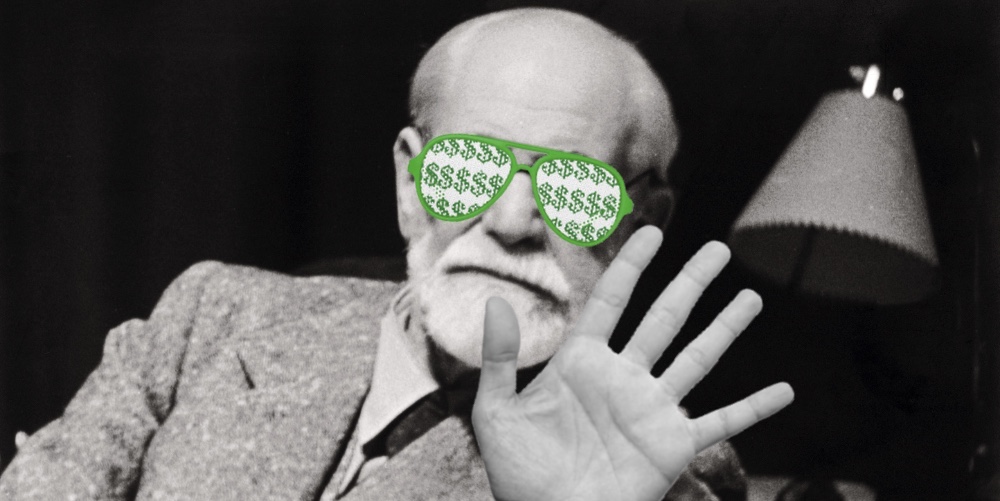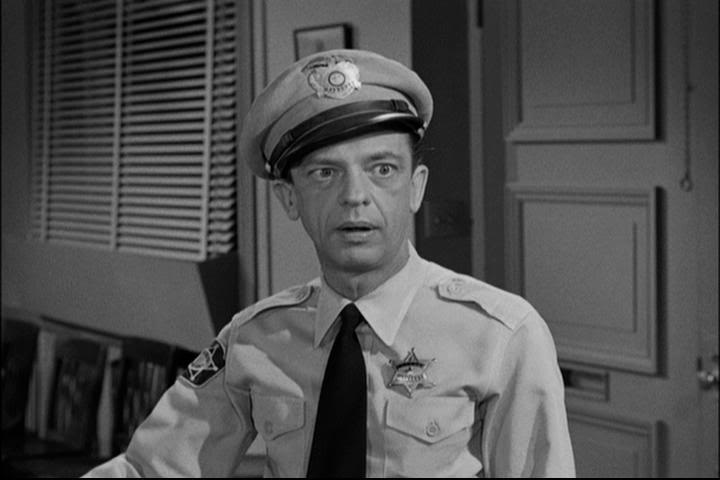
Although Freud’s theories have fallen out of favor in the world of psychology, his name still holds cachet in the world’s collective psyche.
He's still a pioneer when it comes to understanding people’s deepest motivations—something particularly useful if you want to motivate someone to purchase. People buy because of what they feel, not necessarily what they think.
Try out these 5 psychology tips that would have induced Freud to pull out his wallet:
1. Social Influence
 Image credit: imdb.com
Image credit: imdb.com
Humans frequently defer to “the crowd” for cues on how to behave in certain situations. Put simply: If other people in your social circle/market/stratosphere are doing it, there is a strong emotional pull for you to do it too.
Here’s how you work it:
- Do a thorough evaluation of your potential client and their business model.
- Select a list of current clients that look a lot like them (similar business model, needs, market concerns, industry, etc.).
- Develop a set of case studies and examples showing (not telling) how your company helped these current clients.
Point to these case studies and say, “You know Z Company? We were able help to boost Z Company’s revenue by X% with our product/service.”
This does two things for your prospect:
- Dispels doubts by clearly demonstrating that your solution already works for companies their situation
- Exerts a strong social influence pull, inducing your prospective client to want to follow Company Z
2. The Rule of Reciprocation
 Image credit: Spotify.com
Image credit: Spotify.com
Humans are deeply hardwired to return favors; it can cause emotional pain not to be allowed to return one.
Apply this in your marketing efforts by going the extra mile for prospects. Point out that you’re doing them a favor—a special favor—just for them. Help them understand that it’s not something you’d normally do, but you’re making an extra effort for them.
What would this look like during the sales cycle?
- Free trial (like Spotify and Netflix).
- Special freebies.
- Mentioning that you personally made arrangements to fulfill a special request for them.
- Fresh cookies, etc.
They’ll feel a strong inclination to return the favor by signing the contract, buying the service, or referring a friend.
3. Contrast Principle
 Image credit: imdb.com
Image credit: imdb.com
This is a proven psychological sales technique that works whether you’re a used car salesman or trying to sell an involved B2B product or service.
It works like this:
- Initially present the product for a dramatically inflated price.
- Tell them that, just for them, you are lowering it by a dramatically reduced amount (an amount that can still be above your desired price so there’s room to negotiate further).
Now you’re combining the rule of reciprocation and the contrast principle; it’s very hard for clients to resist buying under these circumstances.
4. Authority
 Image credit: imdb.com
Image credit: imdb.com
People have a gut response to follow/respond to recognized authorities.
Ever automatically lean on the break because you see a car that just looks like a police cruiser?
During the sales cycle, you can:
- Present answer to the client’s questions on official company paper
- Post answers to their questions on your website
- Show them reputable, official third-party testimonials or recommendations
5. Scarcity

There’s nothing like perceived scarcity to drive up demand for something.
A couple years ago, there was a hurricane on a path towards Houston. There was a mad rush on the grocery stores to stock up on food and water.
I remember that all the PopTarts were gone.
Now…I NEVER eat PopTarts, but I wanted them as soon as I saw that they were all gone.
How many times has this happened to you: you’re shopping for something online and it says “Only 2 left in stock” under the product description. It pushes you to put it in your cart and buy it before anyone else does.
In the B2B world, telling clients that a certain deal only lasts for a short time before it expires, or that there is only a limited quantity of a high-demand product can push their emotional urge to buy now.
These time-tested psychological sales and marketing techniques can be the key inducing clients and prospects to buy—sooner rather than later.
If you want to learn more about how to influence your prospective clients, and discover who you are as an authority, you can get a free copy of our best selling book here.

